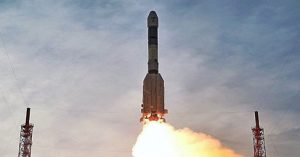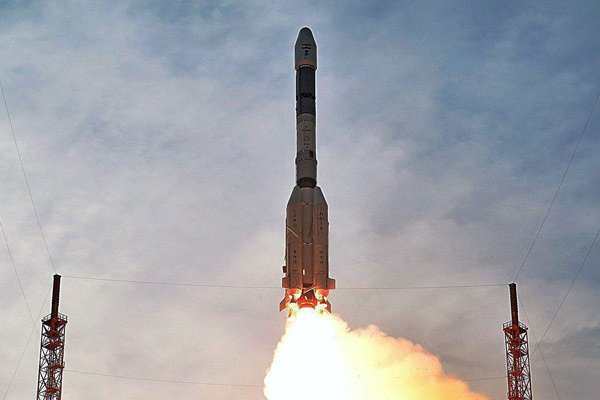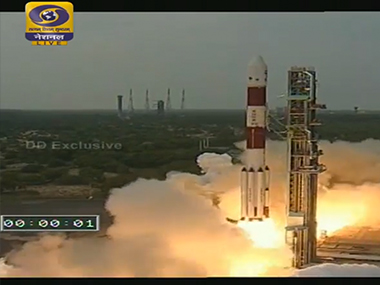
ISRO has launched Astrosat, India’s first dedicated space observatory, from Sriharikota
The Indian Space Research Organisation (ISRO) has successfully launched the country’s first dedicated astronomy satellite for studying celestial objects, Astrosat on September 28, 2015 (Monday) at 10 am from Satish Dhawan Space Centre, Sriharikota in Andhra Pradesh.

At the mission control room, space scientists at ISRO were glued to their computer screens watching the rocket escaping the earth’s gravitational pull. Just over 22 minutes into the flight, the rocket slug ASTROSAT at an altitude of 650 km above the earth. Soon after, six other satellites were put into orbit and the whole mission ended in just over 25 minutes. Immediately on the successful ejection, scientists at the mission control centre were visibly relieved and started clapping happily.
ISRO’s most trusted rocket and workhorse launch vehicle PSLV-C30 (Polar Satellite Launch Vehicle) PSLV-C30 is carrying Astrosat along with six other international satellites (4 from the US, 1 from Indonesia and 1 from Canada) to place it into a 650-km orbit inclined at an angle of 6 degree to the equator.
Mission Readiness Review (MRR) committee and Launch Authorisation Board (LAB) that met on September 25 had cleared the launch of PSLV-C30.

ASTROSAT is the India’s first dedicated multi-wavelength space observation satellite aimed at studying the celestial sources and is capable of making an observation in the Ultra Violet, optical, , low and high energy X-ray regions of the electromagnetic spectrum. For this ASTROSAT will be carrying four X-ray payloads, one UV telescope, and a charge particle monitor. ASTROSAT will make it possible to measure magnetic fields of neuron stars, understand high-energy processes in binary & extragalactic systems and even search for black hole sources in the galaxy.
According to ISRO, after injection into Orbit, the two solar panels of Astrostat will be automatically deployed in quick succession. The spacecraft control centre at Mission Operations Complex (MOX) of ISRO Telemetry, Tracking and Command Network (ISTRAC) at Bengaluru will manage the satellite during its mission life.
For the third time, a PSLV rocket has launched seven satellites in a single mission. In 2008, ISRO had launched 10 satellites in one go, including India’s Cartosate-2A satellite. Till date, India has launched 45 foreign satellites for a fee.